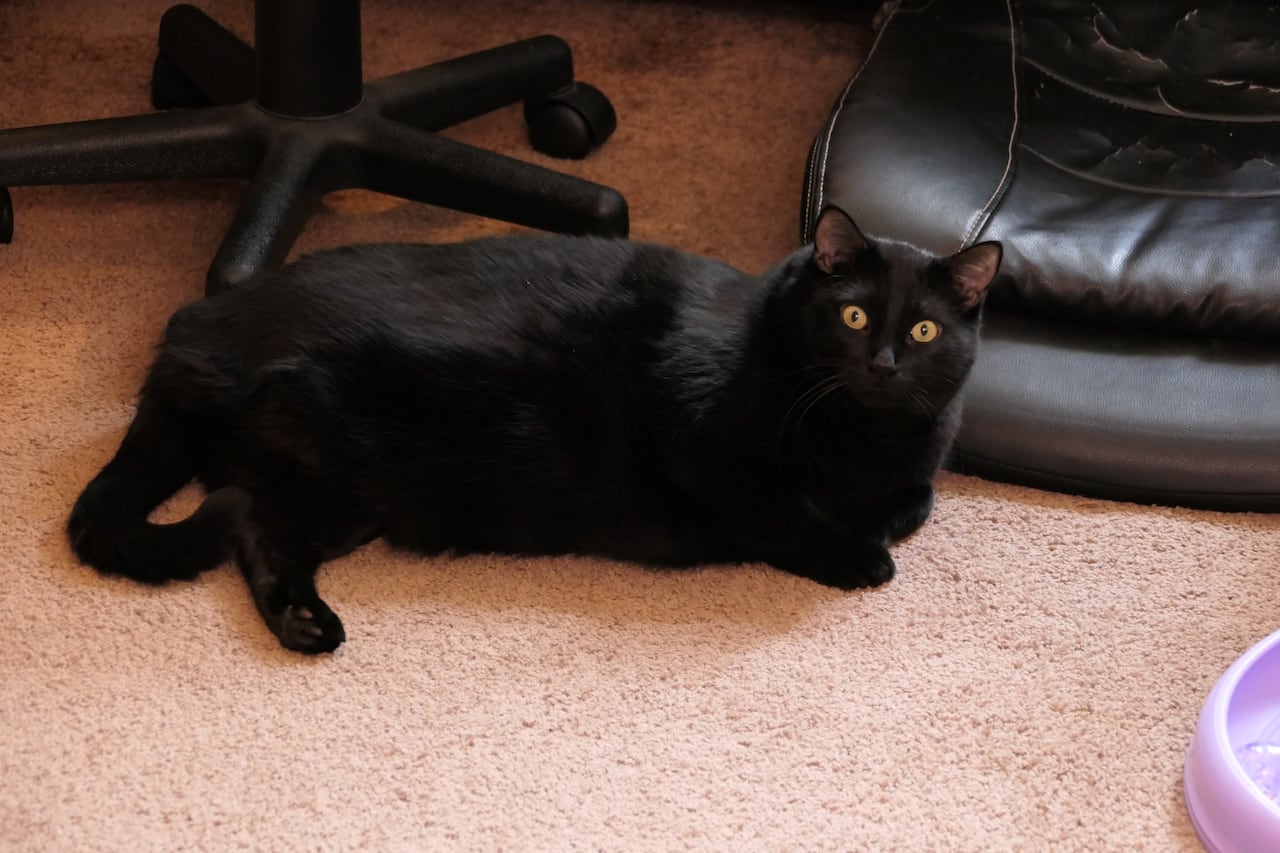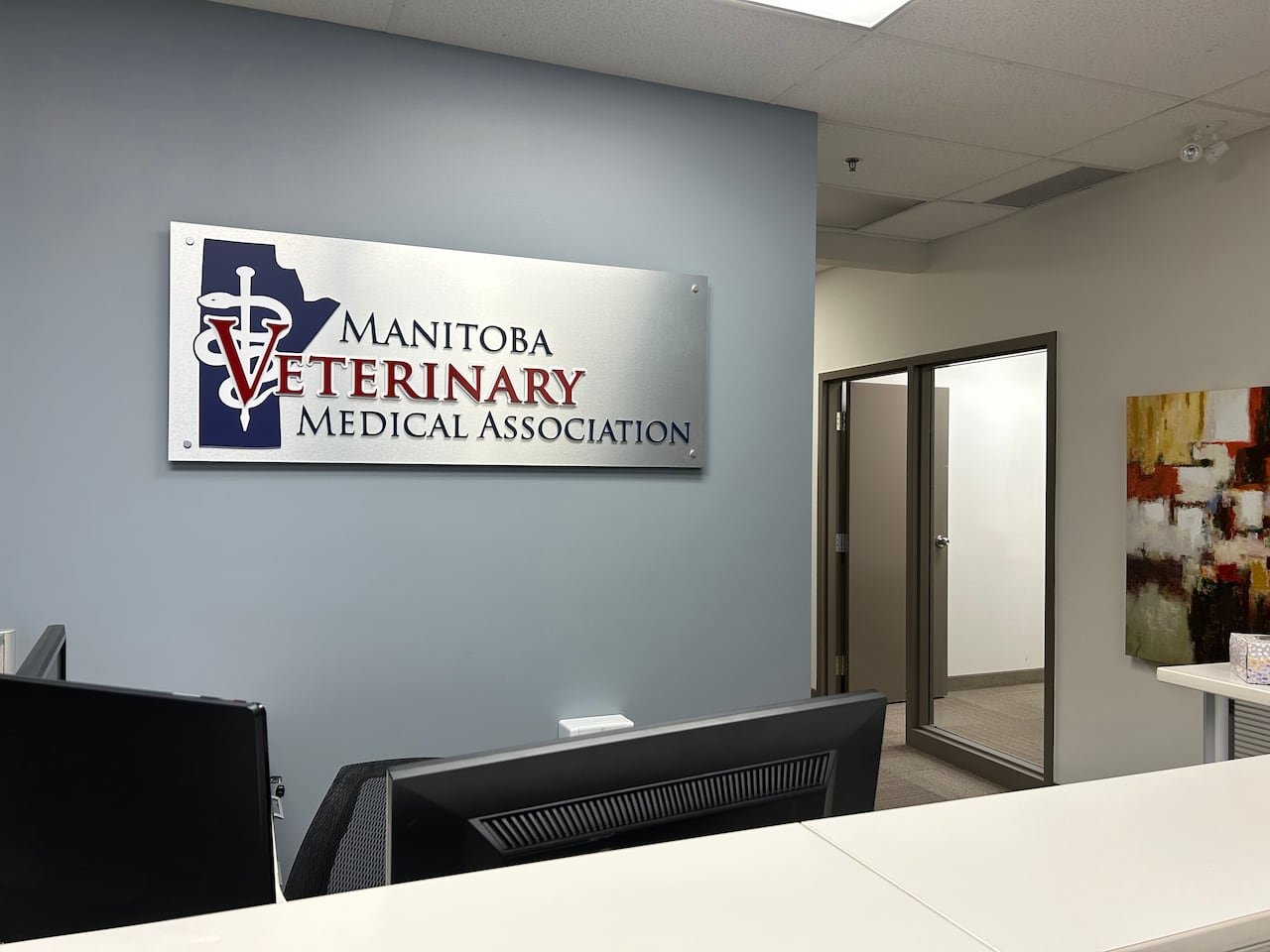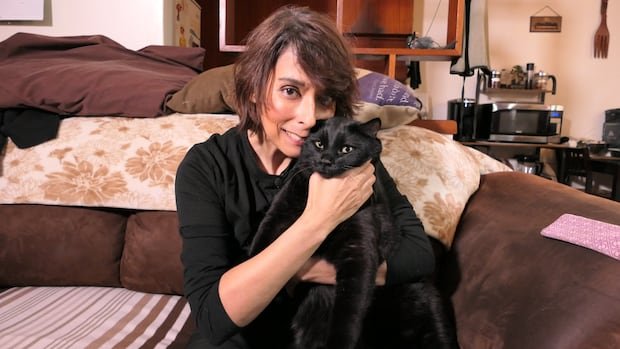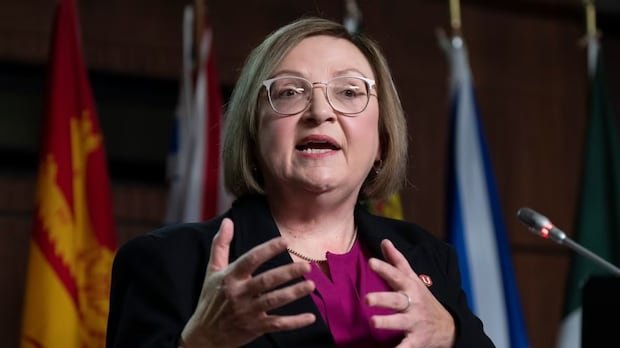A Winnipeg pet owner whose cat Shadow needed a hind leg amputated after a mistake during surgery says she’s glad the veterinarian has been ordered to end his practice in 2026.
“I’m glad the decision was made and I’m happy with the decision,” Noelle McIvor said. “I thought I was going to have to put him down because he had no quality of life.”
Dr. Wenchao Zheng, who has an “extensive” disciplinary history with Manitoba’s veterinary regulatory body, has agreed to stop practicing and retire on June 30, 2026, after pleading guilty to professional misconduct.
Zheng has also been permanently banned from performing orthopedic surgery, effective immediately, and must post a notice at his clinic, the Animal Hospital of Manitoba, and on his website, stating that he does not perform orthopedic surgery.
You must also have completed outstanding continuing education requirements by Oct. 31, renew an agreement for the supervision of your practice until you retire, and pay $15,000 to cover the cost of the Manitoba Veterinary Medical Association’s investigation and hearing of complaints against you.
Zheng was given a hearing before an investigative panel of the veterinary association’s peer review complaints committee on July 29.
Documents related to the decision refer to eight previous veterinary association disciplinary cases with sanctions against Zheng, dating back to 2002.
The decision says Zheng has “an extensive disciplinary history with the MVMA and shows continued disregard for its ability to impose sanctions on members and be a self-regulatory body, bringing the profession into disrepute.”
In a letter to veterinary association council members after the decision, Zheng said he had been “unfairly singled out for disciplinary action.”
“I feel that in many cases I have been systematically discriminated against by the MVMA peer review complaint committee for many years,” he wrote.
“The only viable explanation is that I and the Manitoba Animal Hospital have been subject to discriminatory actions based on race or ethnicity as defined by the Canadian Human Rights Act.”
Winnipeg veterinarian Dr. Wenchao Zheng has agreed to stop practicing on June 30, 2026, after a Manitoba Veterinary Medical Association investigative panel found him guilty of professional misconduct.
The veterinary association’s interim registrar, Barb Kryzanowski, responded to his allegations in an email.
“Dr. Zheng’s disciplinary record is a result of the peer review committee fulfilling its mandate to review, investigate and process complaints (where warranted) that were received from members of the public,” Kryzanowski said.
“The MVMA’s actions were initiated and required due to complaints the MVMA received from Dr. Zheng’s clients.”
This is the first time an MVMA investigative panel has canceled a veterinarian’s license, Kryzanowski said.
“This is the most severe sanction that an investigative panel can order.”
Dr. Zheng said in an email that he is “ready to retire,” as long as he can find one or two veterinarians to take over his clinic. He’s been trying to sell it for more than a year.
“The Animal Hospital of Manitoba may have to close its doors in 2026, what a shame,” he said.

He also said he charges his clients lower exam fees than other animal hospitals in Winnipeg, and that his practice has offered a veterinary fee subsidy program that has waived $253,000 in fees for more than 1,000 families.
The investigative panel heard four complaints against Zheng’s veterinary work: two from members of the public in 2023 and two referrals from the MVMA registrar in 2024.
The two most recent complaints from pet owners involved cats. One of them was McIvor’s complaint about the care given to Shadow.
Zheng diagnosed Shadow, a young cat, with severe osteoarthritis in his right hip and had surgery in August 2023, but Shadow was still lame after the operation, according to the decision.
Shadow’s right hind leg had to be amputated about four months later by a different veterinarian.

“It was excruciating to watch him recover,” said McIvor, who worked at Dr. Zheng’s veterinary practice and filed a complaint about him with the veterinary association the same day as the amputation.
“[Shadow] I wasn’t happy. Every time he moved he would just cry and get aggressive and couldn’t walk. “He was rocking back and forth and couldn’t turn without falling,” McIvor said.
“It’s horrible to watch,” McIvor said, “and I wouldn’t recommend it to anyone.”
Zheng wrote that he realized he had caused Shadow’s post-surgery limp and told McIvor that he was responsible.
He said he was “willing to take full financial responsibility to improve Shadow’s quality of life” and that he paid another veterinary hospital $3,418.83 to cover the amputation of Shadow’s right hind limb.
In the second case, at the hearing on July 29, the investigative panel found that there were complications after Zheng operated on the left hind leg of another cat, and other issues related to the cat’s treatment.
The two cases referred for hearing by the veterinary association’s registrar involved Zheng’s failure to complete previously ordered continuing education on topics related to his veterinary practice.
He decision and order by the peer review complaint committee of the Manitoba Veterinary Medical Association was published in the MVMA website in October.
Only a board-certified orthopedic surgeon can perform orthopedic surgery at Zheng’s Main Street clinic, according to the decision.
Orthopedic surgery is used to treat disorders of bones, joints, muscles, tendons, ligaments, spinal cord and nerves, according to the decision.
Despite prerequisites that Zheng complete hours of continuing education, “there appear to be serious deficiencies in his knowledge of current anesthesia recommendations,” which are “critical to safely and ethically providing surgical services of any type, not just orthopedic, to the public,” the investigative panel’s decision says.
The panel also said that as an experienced veterinarian, Zheng should be aware of the requirements for obtaining informed consent for medical and surgical procedures, and providing immediate referral for care that is outside his expertise, such as orthopedic procedures.

McIvor believes the MVMA should do more to hold veterinarians accountable when they have multiple findings of professional misconduct.
“I don’t think a slap on the wrist has done any good for certain vets who have had repeated offenses against them,” McIvor said.
“I think they need to hold their doctors to a higher standard, a higher standard than other people.”
Gordon Goodridge, a retired veterinarian, oversaw Zheng’s practice for the past two years and “came to know him as a hard-working veterinarian who goes out of his way to provide a service to his clients in a financially depressed area of Winnipeg,” he said in an email to CBC News.
“It’s not always easy to provide cutting-edge veterinary care when many of your clients can’t afford that level of care,” Goodridge said.
“Dr. Zheng seems to be well liked by his staff and clients.”









